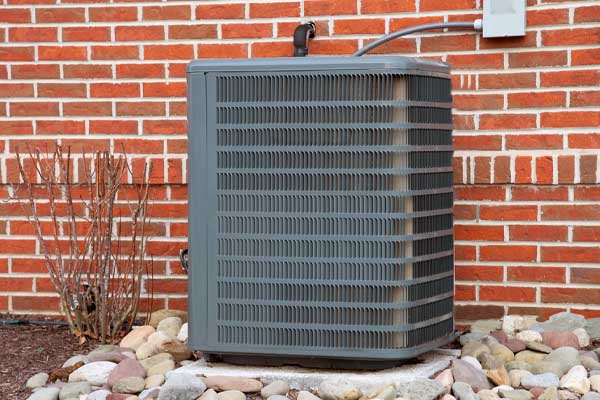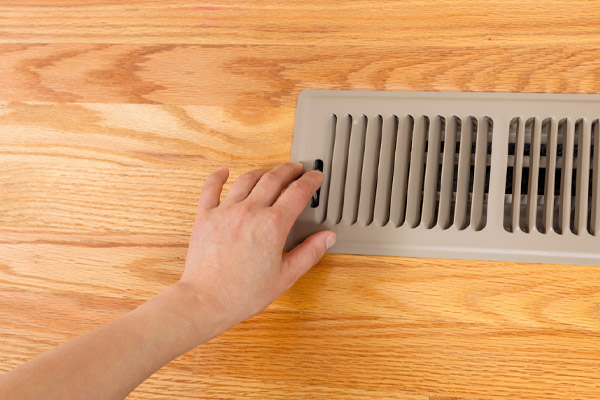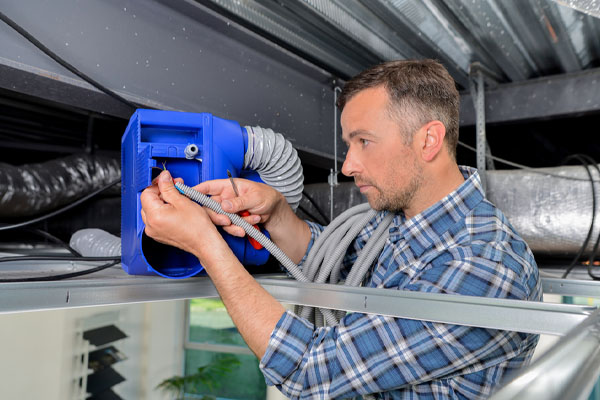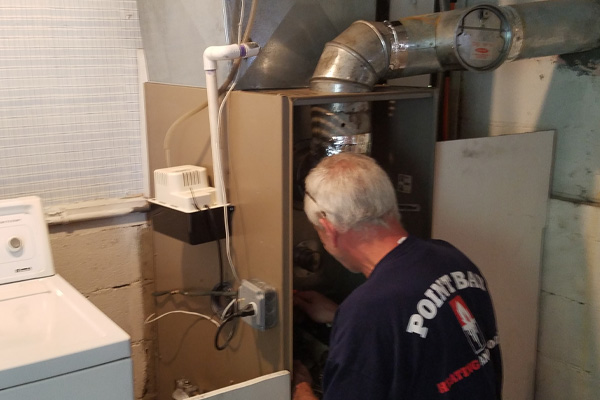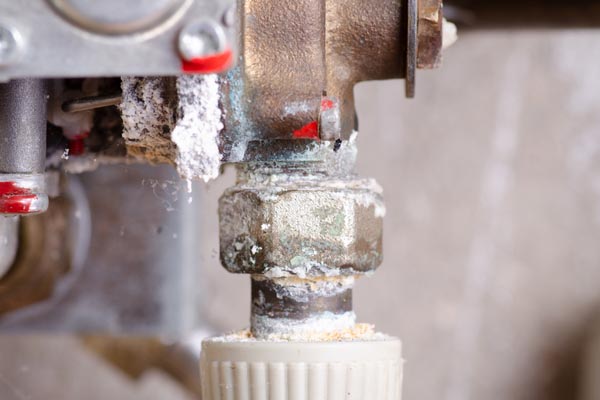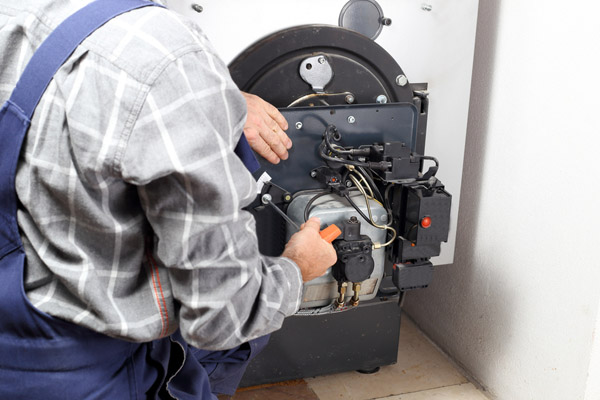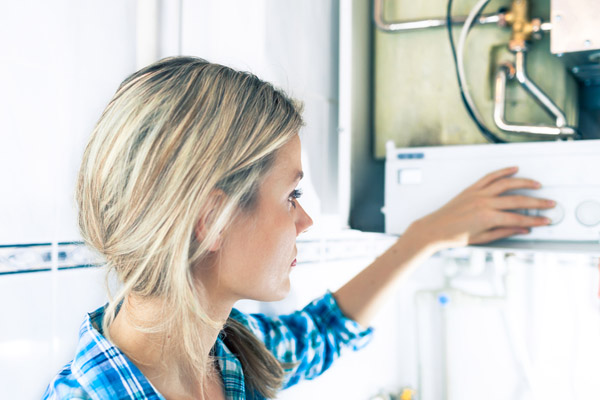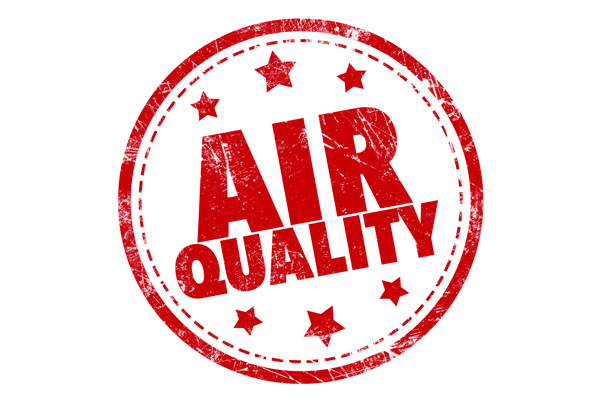
Most of us spend nearly 90% of our time inside, where the quality of air can be significantly worse than outdoors—up to 2 to 5 times more polluted, in fact. This reality brings to light the essential role that indoor air quality plays in our everyday lives. The air we breathe within our homes, offices, or public spaces directly and profoundly affects our health, causing poor indoor air quality symptoms. This is a fact that is too often overlooked in our daily considerations.
This article aims to unravel the true essence of indoor air quality, examining its profound implications on our health. We will delve into why sustaining prime air quality, particularly through the longevity of furnaces, transcends mere comfort and emerges as an essential aspect of health preservation. We will guide you toward ensuring the air you breathe within your indoor spaces is as pure and beneficial to your health as it can be.
Introduction to Indoor Air Quality
Indoor Air Quality (IAQ) pertains to the air quality inside and around buildings and structures, focusing on how it affects the health and comfort of occupants. Multiple factors, such as pollutant levels, ventilation system efficiency, and the humidity within the environment, influence IAQ. It covers various components, including but not limited to carbon monoxide, radon, volatile organic compounds (VOCs), and various forms of particulate matter.
Understanding the Value of IAQ

The criticality of IAQ is immense. Considering the substantial amount of time we spend indoors, the caliber of air we inhale is crucial to our health and general wellness. Substandard IAQ can precipitate a spectrum of health concerns, varying from headaches and fatigue to more severe respiratory ailments and chronic health conditions. Hence, prioritizing excellent IAQ is fundamental, serving as a means to comfort and a key component in sustaining our overall health.
Determinants of IAQ
The quality of indoor air is shaped by multiple elements, such as:
- Architectural Structure: The building’s architectural layout significantly influences air flow and the quality of the air inside.
- Airflow Systems: Adequate ventilation is key for replacing indoor air with fresher air from outside, thus diluting indoor pollutants.
- Indoor Activities: Various activities, including cooking, cleaning, and using some personal care products, can emit pollutants into the indoor environment.
- External Environment: The air quality outside, weather patterns and the building location, can significantly impact indoor air quality.
Grasping these components is essential in enhancing indoor air quality. With Point Bay Fuel, you can adeptly tackle the intricacies of IAQ to guarantee that your indoor environment remains healthy and secure.
The Unseen Peril: Identifying Poor Indoor Air Quality
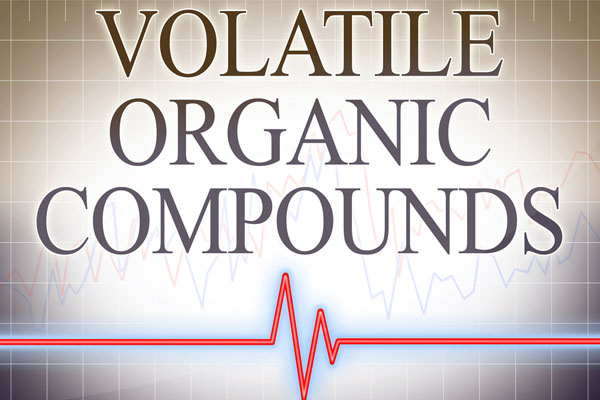
Poor IAQ is often the result of a range of pollutants, some of which are imperceptible to our sight and smell. Prominent pollutants are:
- Volatile Organic Compounds (VOCs): These chemicals are present in common household items, including paints, varnishes, and cleaning supplies. VOCs can vaporize into the air, leading to potential health problems such as headaches and, in cases of prolonged exposure, organ damage.
- Particulate Matter: They are minuscule particles or droplets suspended in the air, like dust, pollen, and mold spores. These particles are small enough to infiltrate the lungs deeply and may even make their way into the bloodstream.
- Carbon Monoxide (CO): This is an invisible, odorless gas that emanates from the combustion of various fuels. In elevated concentrations, CO can be deadly.
- Radon: This naturally occurring radioactive gas can seep into buildings through foundation cracks. It is a notable risk factor for lung cancer.
- Biological Contaminants: This group encompasses mold, bacteria, viruses, and pet dander. These agents can trigger respiratory problems and allergic reactions in individuals.
Sources of Pollution
The typical sources of these pollutants in indoor spaces are frequently found in everyday objects and activities, such as:
- Construction Elements: Some insulating materials, specific types of paints, and pressed-wood products are known to emit pollutants into the surrounding air.
- Furnishings: Items like upholstered furniture and carpets often become reservoirs for dust mites and mold spores.
- Cleaning Agents: Numerous household cleaning products are composed of chemicals that can exacerbate indoor air pollution.
- Heating Appliances: Furnaces and other heating systems, if not regularly and properly maintained, can evolve into major emitters of carbon monoxide and additional pollutants.
Consistent maintenance and adequate ventilation are crucial in counteracting these sources of pollution. With a professional’s help, you can effectively identify and tackle these hidden hazards in your home or workplace, ensuring a safer and healthier indoor environment.
Acute Health Implications: Recognizing Symptoms and Risks

Indoor air pollutants can irritate the throat, nose, and eyes, leading to discomfort and an increased risk of respiratory infections, especially in those with compromised immune systems. Immediate exposure to certain pollutants like VOCs and carbon monoxide can cause acute symptoms such as headaches and nausea, which are exacerbated in poorly ventilated areas.
Compromised indoor air quality can trigger asthma attacks and exacerbate allergy symptoms, evident in coughing, wheezing, and shortness of breath for those sensitive to these conditions. Improving indoor air quality is essential for health and comfort, and collaborating with Point Bay Fuel is an effective way to address these challenges and create a healthier indoor environment.
Long-Term Health Implications: Persistent Exposure and Risks
Continuous exposure to indoor air pollutants like radon and particulate matter is linked to serious health issues, including lung cancer and chronic obstructive pulmonary disease (COPD), highlighting the importance of consistently managing air quality.
Prolonged exposure to these pollutants also increases the risk of cardiovascular diseases. This includes heart attacks and coronary artery disease due to their harmful effects on blood vessels and heart function. Additionally, recent studies suggest that long-term exposure to poor indoor air quality may negatively impact neurological health. They can potentially contribute to cognitive decline and a higher risk of neurodegenerative diseases.
Vulnerable Groups: Who is Most at Risk?

Children, due to their developing bodies and respiratory systems, are at heightened risk of long-term health complications. The elderly, often possessing weaker immune defenses, are more vulnerable to the adverse effects of poor IAQ.
Individuals with pre-existing respiratory and heart conditions also face increased risks. Indoor pollutants can exacerbate their symptoms and cause further health complications.
Strategies for Air Quality Enhancement
Effective mitigation of indoor air pollution requires proper ventilation. This involves more than just opening windows. It includes using exhaust fans and dedicated ventilation systems for efficient air circulation and removal of airborne contaminants. It’s also vital to identify and minimize pollution sources. Choose low-VOC products, maintain appliances, and reduce the use of air fresheners and candles. Additionally, using air purifiers and filters can remove particles and pollutants. Incorporate houseplants that can help absorb toxins, although their impact on air quality is typically minor.
Conclusion
The detrimental effects of poor indoor air quality are extensive. They range from respiratory issues and headaches to chronic illnesses and neurological effects. Some have particularly pronounced impacts on more susceptible groups. Address these risks by controlling pollutant sources, enhancing ventilation, and utilizing air purification methods.
Contact Point Bay Fuel for Comprehensive HVAC Solutions
Point Bay Fuel is your go-to provider for exceptional heating and cooling services in Ocean County and Monmouth County, New Jersey. Our team comprises highly skilled, professionally certified technicians adept at delivering top-notch HVAC maintenance, repairs, installations, replacements, and more. Each technician has the expertise and experience needed to service your HVAC system efficiently and effectively.
We pride ourselves on offering the region’s most competitive prices for heating and cooling services. Our maintenance solutions are designed to enhance comfort, boost energy efficiency, and lower heating and cooling expenses. In situations requiring HVAC repair or system replacement, Point Bay Fuel is ready to recommend the most suitable options for your home, ensuring they align with your budget. We stand behind our work with a satisfaction guarantee as a testament to our commitment to quality. To arrange a service visit, contact Point Bay Fuel. We provide complimentary, in-home estimates. Call now to get started!
Contact us now by calling (732) 349-5059 to speak to one of our home comfort specialists! Click the link to view our service area.

Related Articles:
- Key Differences Between HEPA & MERV Filters
- Signs You Need Better Air Quality At Home
- What Is Mechanical Ventilation & How Does It Impact Your Home Comfort?
- What Is The Difference Between A Portable & Whole Home Air Filtration System?
- What Is A MERV Rating?
The post Clearing the Air: Unveiling the Health Risks of Poor Indoor Air Quality appeared first on Point Bay Fuel.
